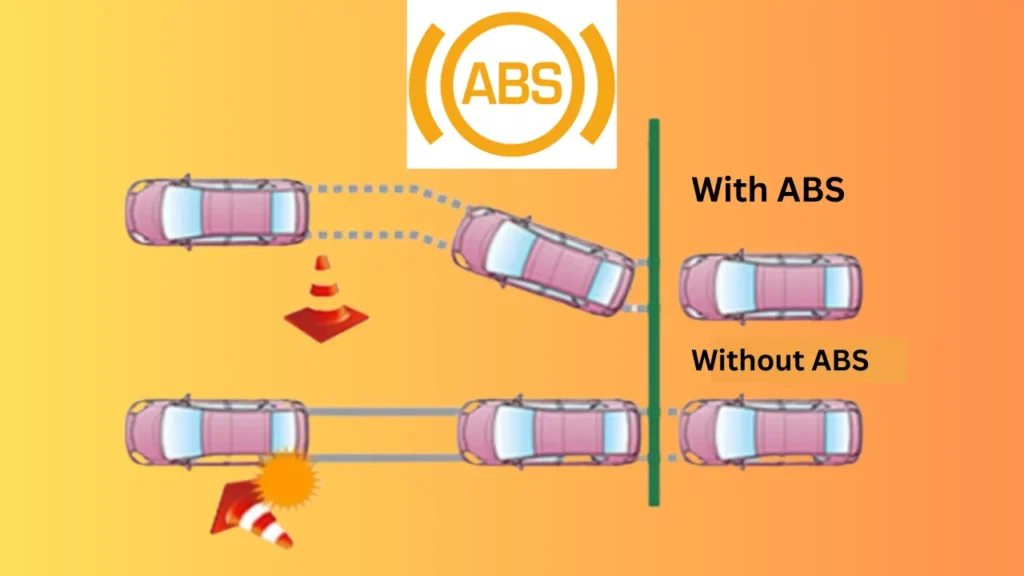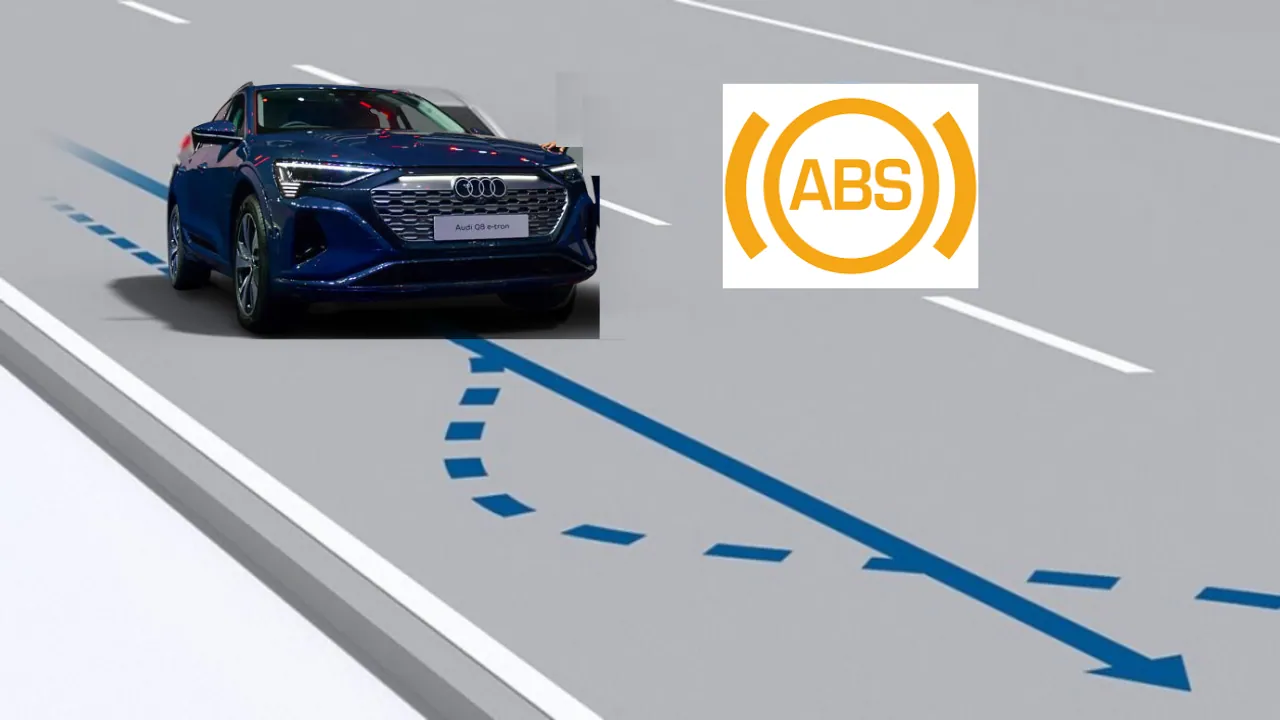In the fast-paced world of modern vehicles, safety is a paramount concern for both drivers and manufacturers. One crucial innovation that has significantly contributed to vehicle safety is the Anti-lock Braking System (ABS). In this comprehensive article, we will delve into the intricacies of ABS, exploring its workings, advantages, and its indispensable role in today’s automobiles.
I. Introduction to Anti-lock Braking Systems (ABS)
Definition of ABS
To begin our journey into the world of ABS, let’s first understand what it stands for. Anti-lock Braking System, commonly known as ABS, is a safety technology designed to prevent wheel lock-up during braking.
Historical Background
ABS technology has come a long way since its inception. It was first developed in the 1920s, primarily for aviation use. However, it wasn’t until the 1970s that ABS started appearing in commercial vehicles. Over time, it has evolved and become a standard feature in most modern cars.
II. How Anti-lock Braking Systems Work
Sensor Technology
At the heart of ABS lies sensor technology. These sensors continuously monitor wheel speed. When a wheel is about to lock up, the ABS system intervenes by adjusting brake pressure to that specific wheel.
Brake Modulation
Brake modulation is a key aspect of ABS. It involves the system rapidly applying and releasing brake pressure, ensuring that the wheel doesn’t stop rotating completely. This enables the driver to maintain steering control.
Preventing Wheel Lock-up
The primary goal of ABS is to prevent wheel lock-up, which can lead to skidding and loss of control. By doing so, ABS helps drivers maintain control over their vehicles, especially in emergency braking situations.
Example, How Does ABS Work?

ABS operates by rapidly modulating brake pressure on each wheel during hard braking. It prevents wheel lock-up, ensuring that the tires maintain traction with the road surface. This technology allows you to steer while braking, reducing the risk of accidents.
III. Advantages of ABS
Improved Vehicle Control
One of the significant advantages of ABS is the enhanced control it provides to drivers. With ABS in place, steering remains responsive during hard braking, reducing the risk of accidents caused by skidding.
Enhanced Safety
ABS is a cornerstone of vehicle safety. It significantly reduces the chances of accidents and helps protect both the driver and passengers by ensuring stable and controlled braking.
Reduced Braking Distance
ABS technology has been proven to reduce braking distance, which is critical in avoiding collisions. In emergency situations, every inch counts, and ABS can make a crucial difference.
IV. Importance of ABS in Modern Vehicles
Regulatory Requirements
Modern vehicles are subject to strict safety regulations, and ABS is often a mandatory requirement. Its presence ensures that vehicles meet safety standards set by governing bodies.
Consumer Demand
Consumers today prioritize safety when choosing a vehicle. The presence of ABS can be a decisive factor in their purchase decision, making it a valuable selling point for automakers.
Integration with Other Safety Features
ABS often works in tandem with other safety features, such as electronic stability control (ESC). This integration further enhances a vehicle’s overall safety performance.
V. Conclusion
In conclusion, Anti-lock Braking Systems (ABS) are a game-changer in the automotive industry. They offer improved vehicle control, enhanced safety, and reduced braking distance, all of which contribute to safer roads for everyone.
How to Identify ABS in Your Vehicle
Wondering if your vehicle is equipped with ABS? Here’s how you can tell:
- Check the Dashboard: Most vehicles with ABS have an ABS indicator light on the dashboard.
- Consult the Owner’s Manual: The owner’s manual of your vehicle will provide information on its features and specifications.
Recap of ABS Benefits
Let’s recap the key benefits of ABS:
- Prevention of wheel lock-up
- Enhanced steering control
- Reduced braking distance
Future Developments in Brake Technology
The future of ABS holds exciting possibilities. As technology advances, we can expect even more sophisticated braking systems that further improve safety on the road.
In a world where safety on the road is paramount, Anti-lock Braking Systems (ABS) stand as a testament to human ingenuity and technological progress. As ABS continues to evolve and become a standard feature in modern vehicles, it plays a pivotal role in reducing accidents, saving lives, and ensuring that our journeys are safer and more secure than ever before.
Q1. Is ABS standard in all vehicles?
No, ABS is not standard in all vehicles, but it is a common feature in most modern cars. However, older or budget-friendly models may not have ABS.
Q2. Can ABS prevent all accidents?
While ABS is a valuable safety feature, it cannot prevent all accidents. It significantly reduces the risk of skidding and enhances control, but driver attentiveness and road conditions also play a crucial role in accident prevention.
Q3. Are there any maintenance requirements for ABS?
ABS is a low-maintenance system. However, it’s essential to follow your vehicle’s maintenance schedule to ensure all components function correctly.
Q4. Do I still need to pump the brakes with ABS?
No, with ABS, there’s no need to pump the brakes manually. Simply apply steady and firm pressure to the brake pedal, and ABS will do the rest.
Q5. Can I turn off ABS if I want to?
In most vehicles, you cannot manually turn off ABS. It’s designed to work automatically to enhance safety. Disabling ABS could compromise your ability to control the vehicle during emergency stops.
Q6. Are all modern vehicles equipped with ABS?
While many modern vehicles come with ABS as a standard feature, it’s essential to check the specifications of a specific vehicle model before purchase.
Q7. Can ABS work on all road surfaces?
ABS is effective on various road surfaces, including wet, icy, and uneven terrain, making it versatile for different driving conditions.
Q8. Is ABS maintenance different from regular brakes?
ABS-equipped vehicles require regular maintenance, including checking sensors and hydraulic components, to ensure optimal performance.
Q9. What are the real-world statistics on ABS effectiveness?
ABS has been shown to reduce the risk of accidents by a significant margin, but specific statistics may vary by region and conditions.
Q10. How does ABS prevent wheel lock-up?
ABS prevents wheel lock-up by modulating brake pressure to individual wheels, ensuring they keep rotating.
